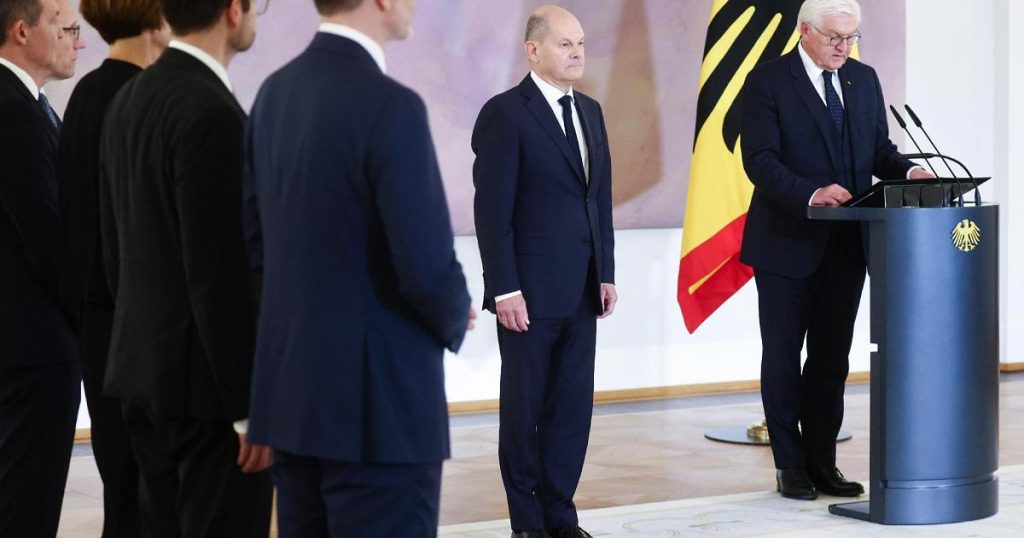The right-wing German opposition party Alternative for Germany (AfD) has called for an immediate vote in Germany after Chancellor Scholz announced that he would seek a vote of confidence on January 15. AfD vice president Alice Weidel stated that “seeking confidence only on January 15 is irresponsible.” Following an extraordinary meeting of the AfD parliamentary group in Berlin, Weidel stated that the Scholz government “must pave the way for new elections and for an immediate vote of confidence,” proposing an alliance between AfD, FDP, and CDU.
CDU President Friedrich Merz also urged Chancellor Scholz to seek a vote of confidence in the Bundestag by the end of the following week in order to hold elections in January 2025. However, Scholz wants to maintain the January 15 date for the vote of confidence, using the transition period leading up to that date to seek shared solutions with the CDU. Despite the calls for an earlier vote, Scholz seems determined to stick to his timeline for the confidence vote.
Meanwhile, German President Frank-Walter Steinmeier has appointed Jörg Kukies, former head of investment bank Goldman Sachs in Germany, as the new Minister of Finance, replacing Christian Lindner, leader of the liberal FDP party who was dismissed by Chancellor Scholz. Volker Wissing, a former Minister of Transport from the FDP, has been appointed as interim Minister of Justice, replacing Marco Buschmann, also from the FDP. Bettina Stark-Watzinger, who was Minister of Education, has been replaced by Cem Oezdemir from the Green Party, who was previously Minister of Agriculture.
In light of the government crisis, Chancellor Scholz has canceled his participation in the COP29 conference in Baku on climate change, scheduled for the next week. The conference will bring together representatives from 200 countries to discuss funding for the poorest countries to facilitate their ecological transition. It is still unclear who will replace Scholz at the conference, but the decision has already drawn criticism from the “Friday for Future” movement, who view it as a negative signal to the international community at a crucial moment.
The political situation in Germany remains unstable as the government faces a vote of confidence and potential early elections. The call for new elections by the AfD and other opposition parties reflects a desire for change and uncertainty over the current government’s ability to address key issues. The appointment of new ministers by President Steinmeier highlights the ongoing reshuffling of key government positions in response to the crisis. The cancellation of Chancellor Scholz’s participation in the COP29 conference underscores the challenges facing the government in prioritizing domestic political issues over international obligations. Overall, the events in Germany point to a period of upheaval and uncertainty in the country’s political landscape.


